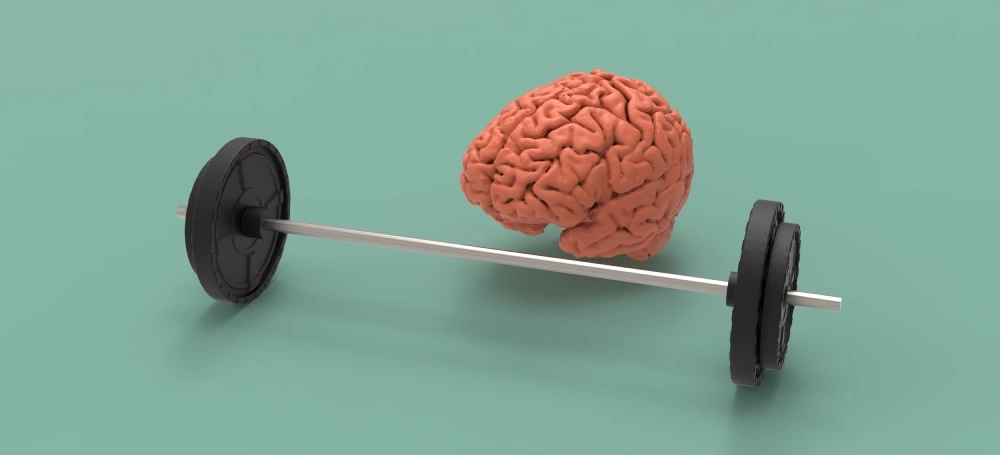When you contemplate testosterone, your first thoughts probably run a little farther south than your brain. But while testosterone is certainly key to your sexual function and libido, it also plays a critical role in your brain health.
You may be surprised to learn that testosterone helps your brain stay focused and find the memories it’s looking for. It helps you avoid so-called “brain fog,” in which you have difficulty concentrating or remembering what you need to focus on. It also plays a role in your brain’s regulation of mood and emotion. It also has been linked to a person’s propensity for developing Alzheimer’s disease.
If you’ve noticed occasional mental lapses or brain fog, you may have chalked them up to aging. Chances are, your testosterone levels didn’t cross your mind. However, understanding the link between testosterone and your brain could make a big difference. Keep reading to learn more.
How Testosterone Functions Within Your Brain
In part, your brain protects itself through what’s known as the blood-brain barrier. This border, which is part of your central nervous system, regulates what substances are allowed to enter your brain, blocking substances that could damage your brain while allowing medications and other substances that can help it.
Testosterone is allowed to cross the blood-brain barrier. This means it can affect the way your brain functions and the way you think. In fact, your brain contains specific receptors that are only activated by testosterone. These are known as androgen receptors — and testosterone is an androgen, which is a type of hormone.
Your brain is key to the production of testosterone in your body in the first place. You were probably taught in high school health class that your testes produce testosterone — and that’s partially true. Your brain is part of the testosterone loop, though. Your hypothalamus, a tiny structure deep in the heart of your brain, controls the production of hormones throughout your body, including testosterone. It pays attention to the levels of testosterone in your body, sending a message to stop production when levels are adequate.
Sometimes, though, the feedback loop involved in testosterone production breaks down. This can occur either in the testes or in the hypothalamus. For most men, this starts to happen in the 30s, when your body begins to slow down its testosterone production by an average of 1% per year. As you get older, this can result in your overall testosterone levels falling below the normal range of 300 to 1,000 nanograms per deciliter — and those low testosterone levels can have significant effects on your body and your brain.
Testosterone and Cortisol
Testosterone also plays a key role inside your brain in the regulation of cortisol. Have you ever experienced a “fight or flight” moment? It’s cortisol, often called the “stress hormone,” that kicks you into that mode. If your cortisol levels are consistently too high, you may find yourself having problems with concentration and mental clarity.
Those high cortisol levels correlate with your testosterone levels in a negative way. If your cortisol levels are high, your testosterone levels are probably low. Testosterone appears to be involved in keeping cortisol under control. If your testosterone levels are low, your cortisol levels are high — leaving your brain in a constant “fight or flight” status that can result in brain fog. Bringing your testosterone up to normal levels can help push back against the negative effects of cortisol.
How Testosterone Protects Your Brain
Testosterone is good for your brain in several other ways. Studies show that testosterone reduces the effects of damage to nerves within the brain and central nervous system, and it helps nerve cells regrow after they’ve been damaged. It prolongs the lives of nerve cells. In addition, testosterone has anti-inflammatory effects throughout the body, including on the nerves.
Testosterone’s Effect on Memory and Cognition
Studies are still underway to determine the relationship between testosterone and memory and cognitive function. There’s no support for the idea of using testosterone just to treat brain fog or lapses in cognitive function. However, research shows that men with low testosterone levels perform more poorly on cognitive tests. There’s good news, though. After they start testosterone replacement therapy, their cognition and memory show distinct improvement.
Other studies show that testosterone is particularly strong in its effect when you’re called on to make a spur-of-the-moment decision. However, it’s not so helpful for the prefrontal activity of your brain, which involves executive function and making reflective judgments. Men who notice this effect should force themselves to slow down and step back from making rash decisions quickly.
Testosterone’s Effect on Mood
Testosterone also has a profound effect on mood and emotions, which are controlled by your brain’s prefrontal cortex. You’re probably familiar with the idea that testosterone can make people more aggressive — and there is certainly evidence to support that concept. But did you know that for teenage boys, testosterone originally starts by enhancing the control of emotions?
Until about the age of 17, testosterone helps keep adolescent boys under control (think back to yourself during those years, and you may shudder to wonder what your life would have been like if you didn’t have the extra hormonal help!). As you reach adulthood, the role of testosterone in affecting mood shifts radically.
Low Testosterone and Brain Fog
If you’ve been diagnosed with low testosterone levels, there’s a good chance you already know what we’re talking about when we mention “brain fog.” It may even have been your brain fog that drove you to get your testosterone levels tested. That’s how common a symptom it is.
Brain fog manifests in many ways. You might forget where you left your keys (more often than usual). You might forget events on your calendar or even have problems setting your schedule in the first place. Maybe you have more trouble finding the right word.
You may sit in front of your computer for long minutes or even hours at a time, unable to concentrate or to think your way through a problem. You forget what someone told you or what you said to someone else (which can cause big issues both at work and in your relationships). Perhaps you’re having a hard time making decisions because you just can’t sort through the pros and cons the way you should be able to. You might find that your emotions are a bit shaky and unpredictable. You might even have difficulty with depth perception or other tasks involving visual-spatial processing.
Of course, all of these symptoms can occur for reasons other than low testosterone. You could have another neurological issue happening, you could be dealing with depression or other mental health issues or you might simply need better sleep. But for many men, the heart of brain fog is found in their testosterone levels.
If you’re dealing with brain fog, you may find that testosterone replacement therapy is the key to increasing focus, concentration and memory. At the same time, testosterone treatment can end up treating other symptoms, including fatigue, irritability, depression, and loss of lean muscle mass, that affect both your brain and your body.
The Interaction of Other Low Testosterone Symptoms With Your Brain
These related symptoms that can result from low testosterone levels may have an indirect effect on your brain function. Let’s face it, we’ve all found ourselves almost dizzy with tiredness or jet lag and unable to remember a password or even our own names. Once you realize that both fatigue and insomnia can result from testosterone, it’s easy to see how low testosterone levels can cause difficulties with concentration, memory and even everyday thinking.
In addition, low testosterone levels can result in mood-related symptoms including irritability, anxiety and depression. Those, too, can make it hard to stay focused. If you’re dealing with massive anxiety, for instance, you know how hard it is to think about or concentrate on anything other than what you’re worried about.
And since testosterone deficiency can definitely affect your sex life, you’ve got a whole new area to worry about. Problems with sexual function or low libido can cause problems with your relationship — which in turn may increase your stress levels. Also, remember that low testosterone results in high cortisol, which means high stress. Your brain turns quickly into an unending loop of stress, anxiety and poor cognitive function.
Treating Low Testosterone
There’s good news, though, if your cognitive function issues stem from low testosterone levels. That’s because the treatment of low testosterone is straightforward and effective. At Boston Vitality, we have a long history of delivering hormone replacement therapy to men in Massachusetts, and we are experts in helping men figure out exactly what is going on with their bodies (and brains).
If testosterone replacement therapy is the right choice for you, you’ll be glad to learn that you have many options available to increase your hormone levels. You might choose the relatively long-term option of having testosterone pellets embedded under your skin. This delivery method provides a consistent, constant flow of testosterone into your body while demanding nothing from you for months at a time.
Some men prefer instead to take in testosterone through topical patches that are typically applied to the upper arm. Think of them as similar to a nicotine or seasickness patch. These patches, which deliver testosterone through the skin, are easy to apply neatly in the privacy of your home. Similar to the patches is testosterone gel, which you also apply at home. While you might prefer this option if you like a more hands-on approach to your therapy, it’s not recommended if you have kids at home who might get into your medicine cabinet and get their hands on the gel.
Finally, many men opt for injectable testosterone. We’re happy to give you your injections at our welcoming office, or many men prefer to inject themselves weekly at home. No matter which form of testosterone therapy you choose, you’ll find that the treatment is easy, fast and effective.
What Testosterone Treatment Does for Your Brain
The real focus of testosterone treatment is to bring your hormone levels up to normal ranges for your whole-body health. Taking testosterone just to give yourself a cognitive boost isn’t a great idea, and taking high doses of testosterone won’t turn you into an Einstein. However, as you treat your low testosterone levels, you’re very likely to see your cognitive function improve significantly.
Researchers are also learning that low testosterone levels may increase the risk of Alzheimer’s disease and dementia. It appears that the ability of testosterone to protect the brain against cognitive decline may be part of the mix here. We look forward to seeing the results of future studies done in this area.
Until then, we’re ready to help you with your concerns about your own cognitive well-being as well as your physical, emotional, mental and sexual health. There’s no reason to trust your health to medical spas when you have a foremost urologist, Dr. Michael Zachareas, available to you right here at Boston Vitality. Contact us today to see how we can help.


